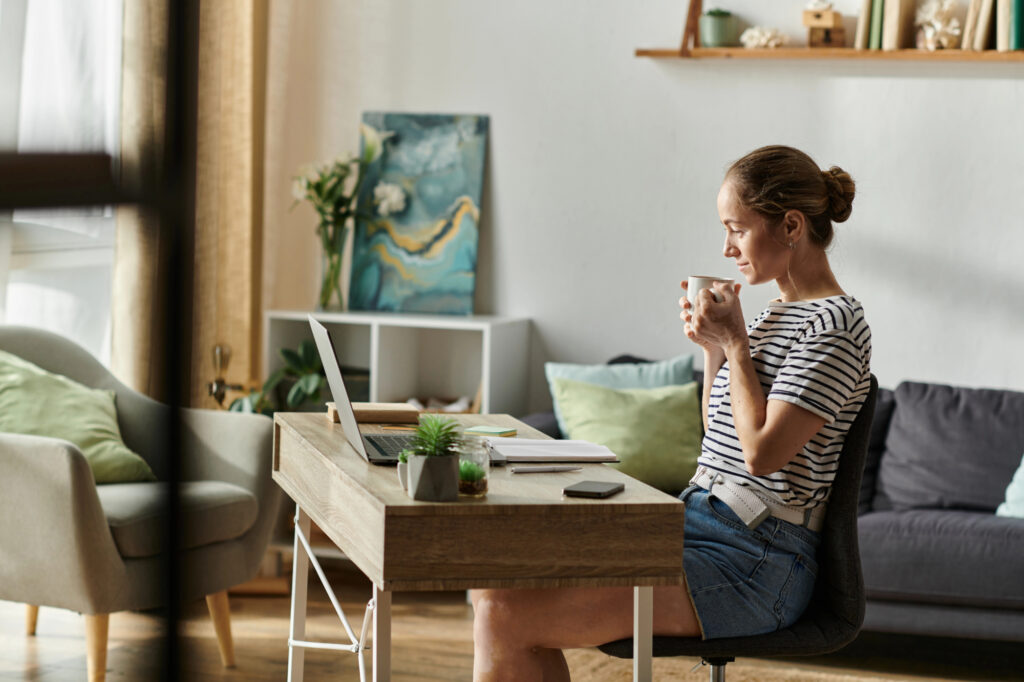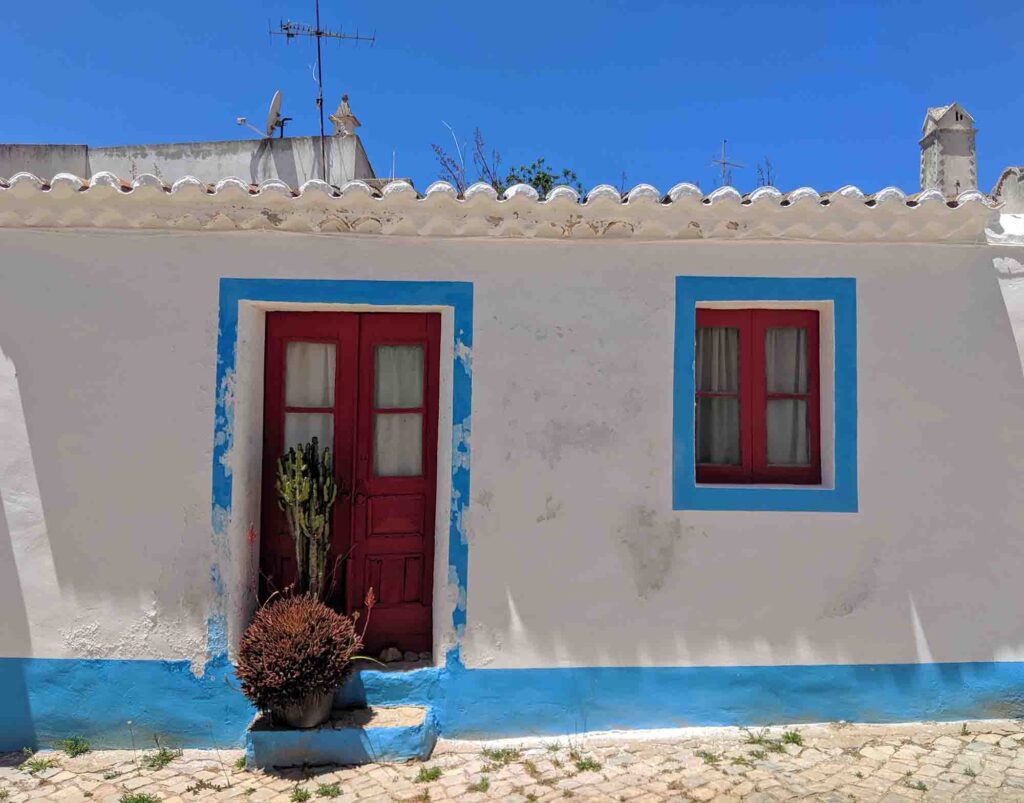Table of Contents
Every visa has its pros and cons, and understanding them is crucial for making the right decision about your move to Portugal. While the D7 visa shares many benefits with other Portuguese residency options, it also has unique characteristics that set it apart.
Let’s break down everything you need to know.
What the D7 Visa Offers
First, let’s establish what you get with a D7 visa, as many of these benefits apply to most Portuguese residency visas:
- Full residency rights: Live anywhere in Portugal as a full-time resident
- Healthcare access: Full access to Portugal’s public healthcare and national health service
- Education benefits: Access to schools, universities, and vocational training programs
- European mobility: Visa-free travel throughout the Schengen Area
- Work and study flexibility: Ability to work, study, and conduct professional activities without additional permits
- Property flexibility: No requirement to buy property (though you’re welcome to if you wish)
- Path to permanence: Permanent residency after 5 years, with a clear pathway to Portuguese citizenship through naturalization after 10 years (7 years for CPLP)
- Initial language flexibility: No Portuguese language requirement to start (though A2 level is needed for citizenship)
Now, since many Portuguese residency visas offer similar benefits, let’s dive into what makes the D7 visa specifically attractive—and where it might fall short for some people.
D7 Calculator: Check Your Eligibilty
The Advantages: Why the D7 Visa Stands Out
1. The Income Requirement Is Actually Achievable

The magic number is €870 per month in 2025, and this makes the D7 visa remarkably accessible. For context, many retirees from the US, UK, and Canada easily meet this through pensions or Social Security payments alone. Those from parts of the world with smaller pensions could top this up with other forms of passive income (e.g., rental income, dividends, etc.,).
But it’s not just for retirees—younger applicants often qualify through rental income from property they own back home, investment, royalties, or any other form of passive income.
Put short, it’s very attainable.
To put this in perspective: The Digital Nomad Visa (D8) requires four times this amount (€3,480 per month in 2025). Spain’s Non-Lucrative Visa (their equivalent to the D7) also demands significantly more. When it comes to financial accessibility, the D7 wins hands down not just in Portugal, but across Europe.
Family Configuration |
D7 Visa |
Digital Nomad Visa |
Difference |
|---|---|---|---|
Main Applicant (Base) |
€870/month |
€3,480/month |
4x more expensive |
2. The Process Is Refreshingly Straightforward

Here’s what makes the D7 visa simple: you need €870 per month from passive income sources (pensions, Social Security, rental income, investment returns, royalties, etc.). That’s it. You either have it or you don’t—there’s no gray area or subjective judgment involved.
Compare this to other options:
- The D2 entrepreneur visa requires a business plan that someone reviews and judges
- The startup visa needs an incubator to accept you
- If you’re a remote worker, you need your company to be okay with you working remotely from Portugal
Both involve subjective decisions where someone else decides if your plans are “good enough”. With the D7, the math is simple and the decision is objective.
Sure, there are unfair rejections and appeals, but it’s must more straightforward than other residency visas.
3. Adding Family Members Won’t Break the Bank

Many Portuguese visas use the same formula for families: add 50% for a spouse/partner and 30% for each child. But because the D7’s base requirement is so low, this stays affordable.
Here’s the math that matters:
- Main applicant: €870/month
- Add a spouse: +€435/month (50% extra)
- Add a child: +€261/month (30% extra)
For the Digital Nomad Visa, these percentages apply to a base that’s four times higher. That difference adds up quickly for families and makes it unattainable.
Family Configuration |
D7 Visa |
Digital Nomad Visa |
Difference |
|---|---|---|---|
Main Applicant (Base) |
€870/month |
€3,480/month |
4x more expensive |
Couple (Main + 50% for spouse) |
€1,305/month |
€5,220/month |
+€3,915/month |
Couple + 1 Child (Main + 50% + 30%) |
€1,566/month |
€6,264/month |
+€4,698/month |
Couple + 2 Children (Main + 50% + 30% + 30%) |
€1,827/month |
€7,308/month |
+€5,481/month |
Single Parent + 1 Child (Main + 30%) |
€1,131/month |
€4,524/month |
+€3,393/month |
Single Parent + 2 Children (Main + 30% + 30%) |
€1,392/month |
€5,568/month |
+€4,176/month |
4. Your Money Stays Your Money

The Golden Visa ties up €500,000 in investments (or requires a €250,000 donation). The D2 visa usually means capital locked into a business venture.
The D7? Your money stays wherever it’s currently working for you. Whether it’s a rental property in your home country, a pension fund, or investments generating dividends, you don’t need to move or tie up any capital.
All that matters is the income flowing from these sources (although you do need to start paying that money into a Portuguese bank account).
5. You Won’t Wait Years for Approval

While official processing should take about 60 days, reality shows it’s more like several months through most consulates. That might sound long, but compared to the Golden Visa’s multi-year backlog, it’s lightning fast.
As AIMA (Portugal’s immigration agency) continues to modernize, these times may improve further, but historically, the D7 has been one of the quicker paths to Portuguese residency.
The Disadvantages: Where the D7 Might Not Work for You
Understanding the downsides is just as important as knowing the benefits. Most of these “disadvantages” only matter when comparing the D7 to other visa options, particularly the Golden Visa.
1. Portugal Needs to Be Your Actual Home

The D7 requires you to spend the majority of your time in Portugal. While all visas allow for emergencies and the D2 offers some flexibility for business travel, most require significant physical presence (typically 6-8 months of the year).
The Golden Visa is the outlier here, requiring just 7 days per year on average. But remember—that flexibility costs €500,000 in investment and comes with years of waiting for your application to be processed. So yes, the D7 requires more time in Portugal, but it’s faster and far more affordable. It’s six of one, half-dozen of the other.
2. You’ll Become a Portuguese Tax Resident

Spending more than 183 days in Portugal means you’ll be taxed on worldwide income. Don’t panic—if you pay taxes elsewhere (like in the US), you can usually claim credits to avoid double taxation. But you will need to navigate Portuguese tax obligations.
Again, only the Golden Visa offers a potential workaround through minimal presence, but at a much higher cost due to the investment requirement.
A note on tax schemes: The popular NHR (Non-Habitual Resident) program has ended. The new IFICI scheme (sometimes called NHR 2.0) exists but typically doesn’t help D7 holders since it’s designed for income from Portuguese entities, particularly startups. It doesn’t automatically exclude D7 holders, it just doesn’t apply to those with passive income normally.
3. Working Rights Come with Question Marks

Here’s where things get murky. The D7 is a passive income visa, not a work visa. Most D7 holders can work on a D7 without issues, but occasionally someone discovers work restrictions printed on their residence permit.
Some people have also been told by consulate officials that they cannot work in Portugal on a D7. Others have been told they can work remotely, but not locally. Needless to say, it gets confusing!
If working is your primary goal, consider these alternatives:
- Digital Nomad Visa for remote work or freelancing
- D1 or D3 visas for employment with Portuguese companies
The D7 can work for workers, but it’s not as straightforward as many of us would like. On the plus side, when it does work, there are no restrictions on which company you can work for — unlike the D1 or D3, where you will be at least partially tied to the company that sponsors your visa.
Visa Type |
Work Allowed |
Best For |
|---|---|---|
D7 Visa |
Usually Yes |
Retirees, Passive investors, People with guaranteed passive income who may want to work occasionally |
Digital Nomad Visa |
Yes |
Remote employees, Freelancers, People working remotely for companies outside Portugal |
D1 Visa |
Yes |
Job transfers to Portuguese companies, People with job offers from Portuguese companies |
D3 Visa |
Yes |
Tech professionals, Researchers, Executives, Highly skilled professionals with Portuguese job offers |
4. You Need Savings Beyond Monthly Income

Besides proving €870/month in passive income, you’ll need to show savings—typically €10,440 (12 months’ worth), though some lawyers suggest €20,880 (24 months’ worth) to cover the initial two-year permit period. There’s actually no official amount, which is why this varies.
The savings requirement catches some people off guard. They have the monthly income but not the lump sum saved. The Golden Visa doesn’t require savings in addition to the investment or donation, and the Digital Nomad Visa doesn’t explicitly mandate it (though it’s wise to include anyway).
Honestly, though? Moving to any foreign country without at least six months of savings is risky, requirement or not.
5. You Need a Portuguese Address Before You Arrive

This means signing a 12-month lease (sometimes 6 months is accepted) before you’ve even set foot in Portugal as a resident. You could buy property instead, but most people understandably want to explore different areas before committing to a purchase.
This requirement creates a real challenge—renting sight unseen from another country isn’t ideal. The Golden Visa doesn’t require this, and some Digital Nomad Visa holders manage with shorter arrangements.
The Bottom Line
The D7 visa offers an accessible, straightforward path to Portuguese residency that works particularly well for retirees, remote workers with passive income, and anyone who genuinely wants to make Portugal their home.
Its low financial requirements and relatively quick processing make it one of the most achievable routes to European residency. However, it’s designed for people who actually want to live in Portugal, not just hold a European residence permit.
Whether these characteristics work for or against you depends entirely on your goals. If you want to truly live in Portugal, the D7 is hard to beat. If you need maximum flexibility to live elsewhere while maintaining EU residency, you’ll need to consider the more expensive Golden Visa option.
The key is understanding what you’re signing up for and ensuring it aligns with your lifestyle and long-term plans.

